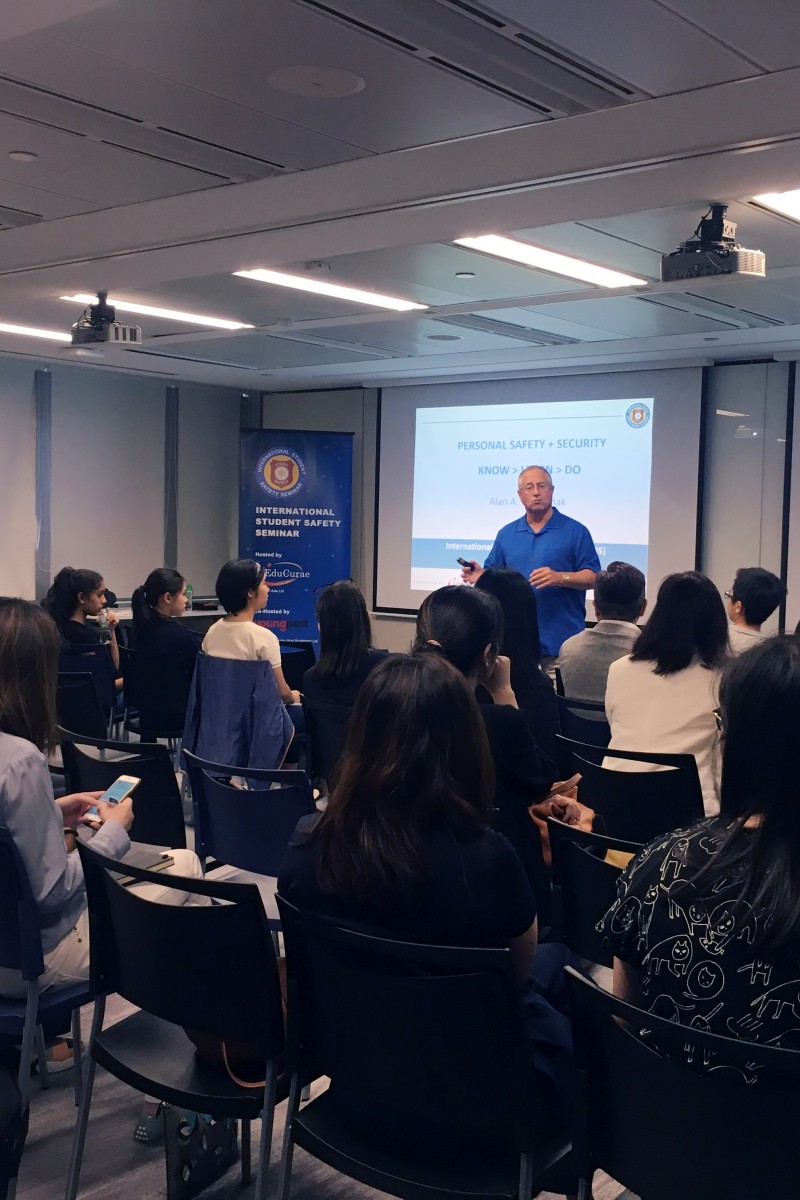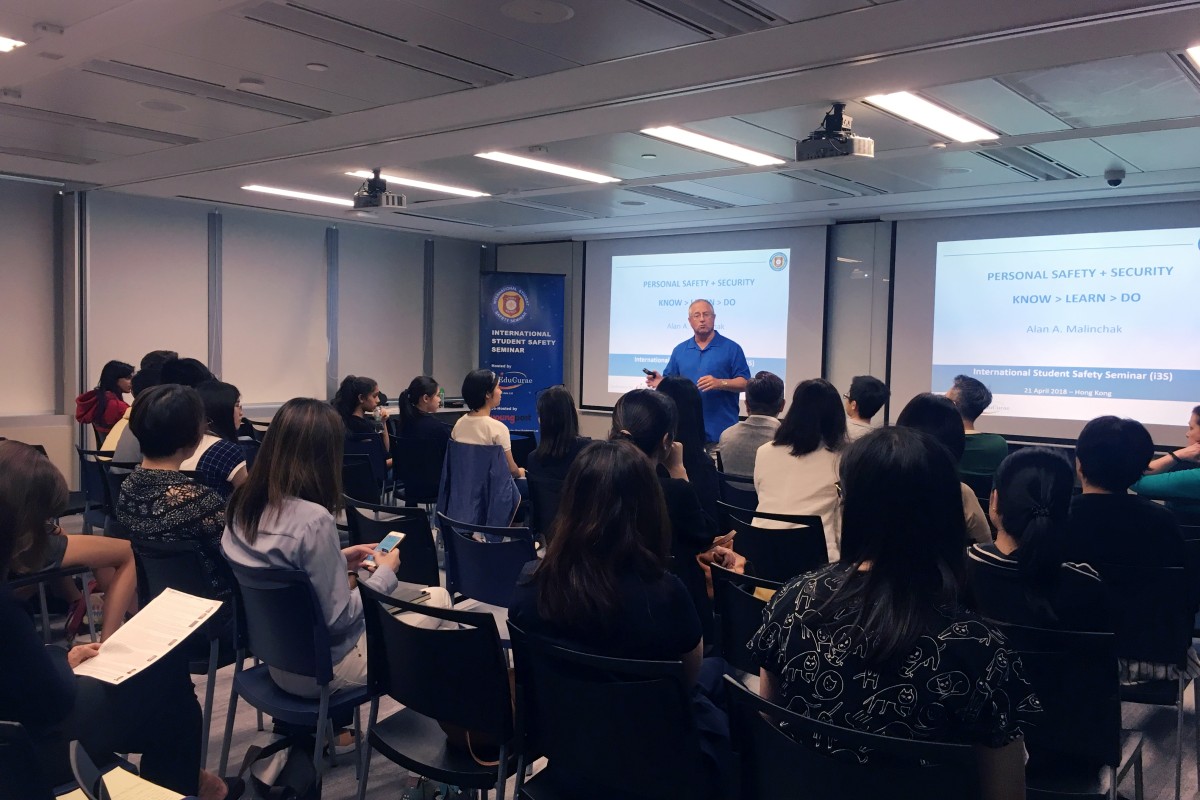
A former FBI agent and other experts offer HK students tips on staying safe abroad
An International Student Safety Summit co-hosted by Young Post and The Educurae Group was full of useful info for those planning to study overseas
 Malinchak worked as a special agent and instructor for the FBI for 30 years.
Malinchak worked as a special agent and instructor for the FBI for 30 years.The thought of attending university abroad can be pretty scary, especially for students who have spent their whole lives in Hong Kong – often said to be one of the safest cities in the world. Young Post and The Educurae Group co-hosted an International Student Safety Summit on April 21, at South China Morning Post’s headquarters, to help address these fears.
The seminar saw six specialists from around the world – Alan A. Malinchak, Claire Ong, David Bousquet, David Carter, Ricky Chung, and Victoria Duong – deliver speeches on topics like personal safety. The discussion was moderated by Young Post editor Susan Ramsay.
Malinchak has spent 30 years working for the FBI as a special agent and as an instructor, and said he wanted to dispel the notion the US is a dangerous place – insisting fear of things like gun violence shouldn’t stop anyone from pursuing an education in the country.
“Yes, there are lots of guns in the United States, but the homicide is rate is still very low,” he said. “Most gun violence takes place in the dangerous parts of big cities. The country, as a whole, is very safe and very few crimes occur on university campuses. However, the media publicises everything so it seems more dangerous than it is.”
Still, Malinchak stressed the importance of personal safety, even when in a relatively low-risk place. “You need to be careful wherever you are,” he said. “You need to prepare yourself for the worst case scenarios.”
Malinchak said it’s important for young people to learn the practical skills needed to stay safe.
“Never walk around alone late at night,” he said, adding that it’s best to travel with someone who is looking out for your best interests. “I always have what I call a wing-man, or wing-woman, with me at all times. It makes you much, much safer.”
Another tip Malinchak had for Hong Kong students wanting to study abroad was to develop strong situational awareness.
“Always be aware of your surroundings – for example, take note of where the doors, exits, and hiding spots are in whatever building you’re in.”
He said it’s also important to pay attention to the people you surround yourself with. For example, if you go on a date with a stranger, be sure to tell a friend so they know exactly where you are and with whom, and when you will be back, he said.
Finally, Malinchak advised hopeful university students to be wary of what they post on social media. “A lot of people post pictures online without realising that absolutely nothing on the internet is private,” he said.
“People also foolishly post pictures of themselves [taking part] in illegal activity, such as underage drinking and drugs. If you do things like that, you’re bound to get in trouble.”
Malinchak added that posting too much on social media increases the likelihood of crimes like identity theft and stalking. “Get your birthday off of your Facebook profile!” he said.
Young Post junior reporter Parul Methi said the seminar made her think more about certain safety issues. “The speech made me feel like the US is actually a pretty safe place, but it’s useful to know what to do if a dangerous situation does arise,” the 14-year-old said.
Malinchak and the rest of the speakers stressed the importance of not worrying too much about potential dangers.
“It’s extremely unlikely that you’ll ever be in a dangerous situation in a university campus in the United States,” he said. “Still, it’s always best to remember the importance of safety so that you know what to do if you ever are faced with one.”
